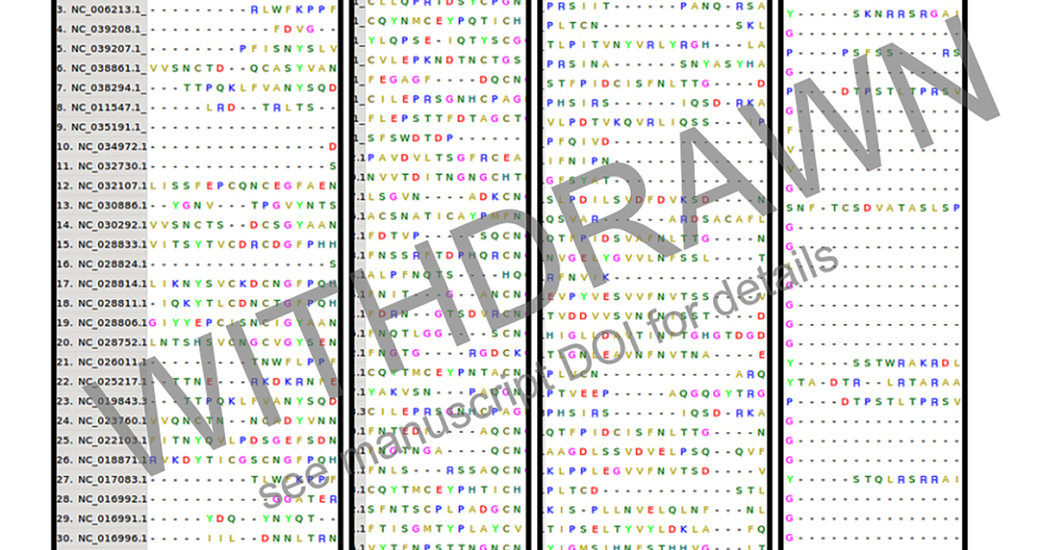Send us a link
Replacing Academic Journals
Replacing traditional journals with a more modern solution is not a new idea. Here, the authors propose ways to overcome the social dilemma underlying the decades of inaction.
Revealed: the Millions of Dollars in Time Wasted Making Papers Fit Journal Guidelines
Revealed: the Millions of Dollars in Time Wasted Making Papers Fit Journal Guidelines
For scientists submitting their papers to journals, there’s an all-too-familiar drill: spend hours formatting the paper to meet the journal’s guidelines; if the paper is rejected, sink more time into reformatting it for another journal; repeat. Now an analysis has put a price tag on all that busy work.

Stop Congratulating Colleagues for Publishing in High-Impact Factor Journals
Stop Congratulating Colleagues for Publishing in High-Impact Factor Journals
The current scholarly publishing system is detrimental to the pursuit of knowledge and needs a radical shift. There have already been many attempts and partial successes to drive a new shift in scholarly publishing. Many of them should be further developed and generalised.

The End of Journal Impact Factor Purgatory (and Numbers to the Thousandths) - The Scholarly Kitchen
'Zombie Papers' Just Won't Die. Retracted Papers by Notorious Fraudster Still Cited Years Later
'Zombie Papers' Just Won't Die. Retracted Papers by Notorious Fraudster Still Cited Years Later
Authors who cited flawed work often fail to warn readers.
The $450 Question: Should Journals Pay Peer Reviewers?
Payment advocates expect quicker, better reviews but opponents fear unsustainable costs.

Elsevier Expands Open Access Options for Cell Press Journals from January 2021
Helping to Archive and Preserve Open Access Journals
Helping to Archive and Preserve Open Access Journals
A recent study looked at the number of journals that had "vanished" from the internet. The study is a timely reminder of how vulnerable publishing outputs are. There is an urgent need for a group of organisations to come together to find a solution and minimise this risk.
Systematize Information on Journal Policies and Practices - A Call to Action
Systematize Information on Journal Policies and Practices - A Call to Action
Recently the creators of Transpose and the Platform for Responsible Editorial Policies convened an online workshop on infrastructures that provide information on scholarly journals. In this blog post they look back at the workshop and discuss next steps.

Coronavirus Tests Science's Need for Speed Limits
Preprint servers and peer-reviewed journals are seeing surging audiences, with many new readers not well versed in the limitations of the latest research findings.

"TOP Factor" Rates Journals on Transparency, Openness
A new tool, created by the advocacy organization Center for Open Science, seeks to change editorial practices. Journals are scored based on ten different criteria, including availability of data and policies on preregistration.
Mass Resignations at Wiley Journal over Academic Independence
Former editors-in-chief at European Law Journal say the departure of editorial boards raises issue about 'who owns' scholarly journals.

New System Will Measure Journals' Research Transparency
A new ranking system for academic journals measuring their commitment to research transparency will be launched next month - providing what many believe will be a useful alternative to journal impact scores.
Journal Brand and Research Culture
Opinion: Things are not right in the culture of research, and that this is ultimately to the detriment of research. Two issues emerge: the huge complexity of the research ecosystem, and the related problem of collective action that this complexity creates.
Lancet Editor-in-chief Calls for 'activist' Journals
Richard Horton says periodicals can no longer sit 'passively waiting' for submissions and should instead focus on issues such as the UN Sustainable Development Goals.

Inferring the Causal Effect of Journals on Citations
Articles in high-impact journals are by definition more highly cited on average. But are they cited more often because the articles are somehow "better"? Or are they cited more often simply because they appeared in a high-impact journal?
Initiative for Open Citations
How Flipping a Journal Became About More Than Just Open Access
Impact Factor Volatility to a Single Paper: A Comprehensive Analysis of 11639 Journals
Negotiating with Scholarly Journal Publishers: A Toolkit
A North American framework for creating transformative change in the scholarly publishing industry based on initial insights from the University of California's 2018-19 negotiations with Elsevier.
This Economics Journal Only Publishes Results That Are No Big Deal
The new Series of Unsurprising Results in Economics (SURE) journal is attempting to fight publication bias.

Aim and Scope - SURE Journal
The Series of Unsurprising Results in Economics (SURE) is an e-journal of high-quality research with "unsurprising" findings. We publish scientifically important and carefully-executed studies with statistically insignificant or otherwise unsurprising results. Studies from all fields of Economics will be considered. SURE is an open-access journal and there are no submission charges. SURE benefits readers by: Mitigating the … Continue reading Aim and Scope →
How Former Elsevier Editors Started a Community-led Publisher and Launched Their First OA Journal
How Former Elsevier Editors Started a Community-led Publisher and Launched Their First OA Journal
After serving as editor-in-chief of an Elsevier journal for over seven years, Lajos Balogh decided to channel his publishing knowledge to a new endeavor. He and a group of fellow editors started a publishing organization and journal of their own.

Libero Reviewer: The Making of a User-friendly Submission and Peer-review Platform
Libero Reviewer: The Making of a User-friendly Submission and Peer-review Platform
A review of the challenges and lessons learned in managing the development of Libero Reviewer.

More Institutions Consider Ending their 'Big Deals' with Publishers
An increasing number of universities are ending, or threatening to end, bundled journal subscriptions with major publishers.



